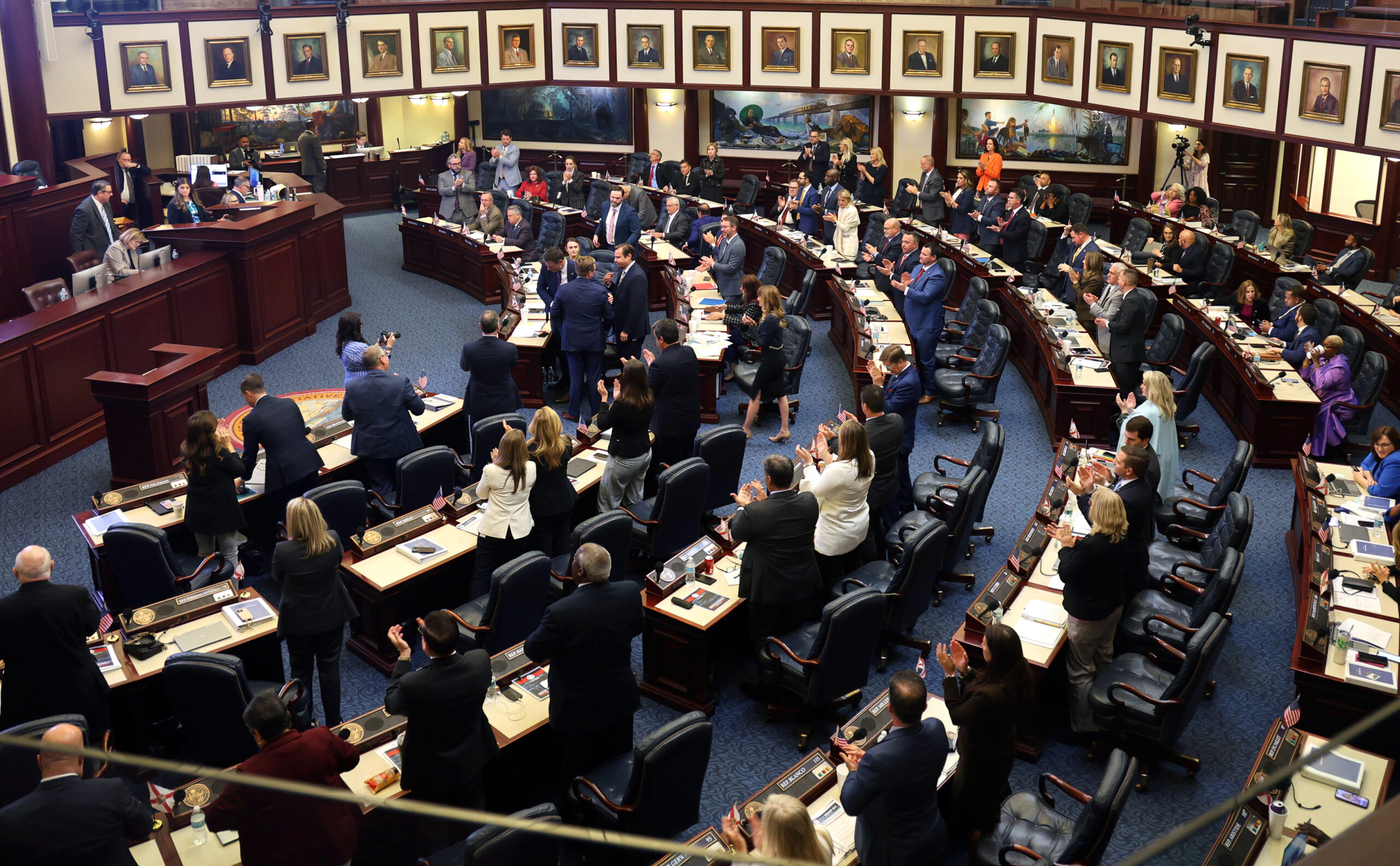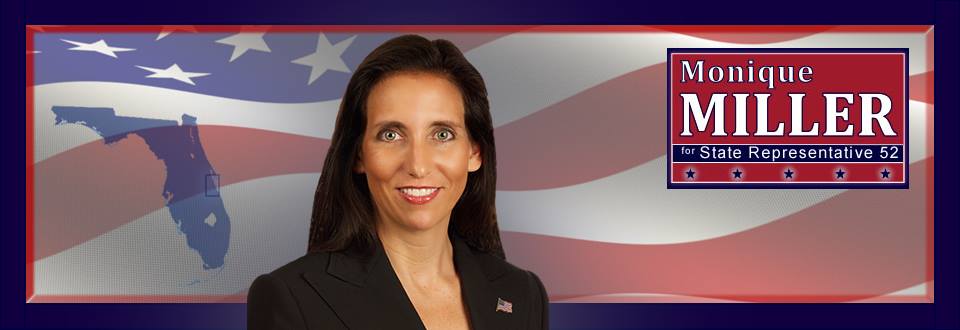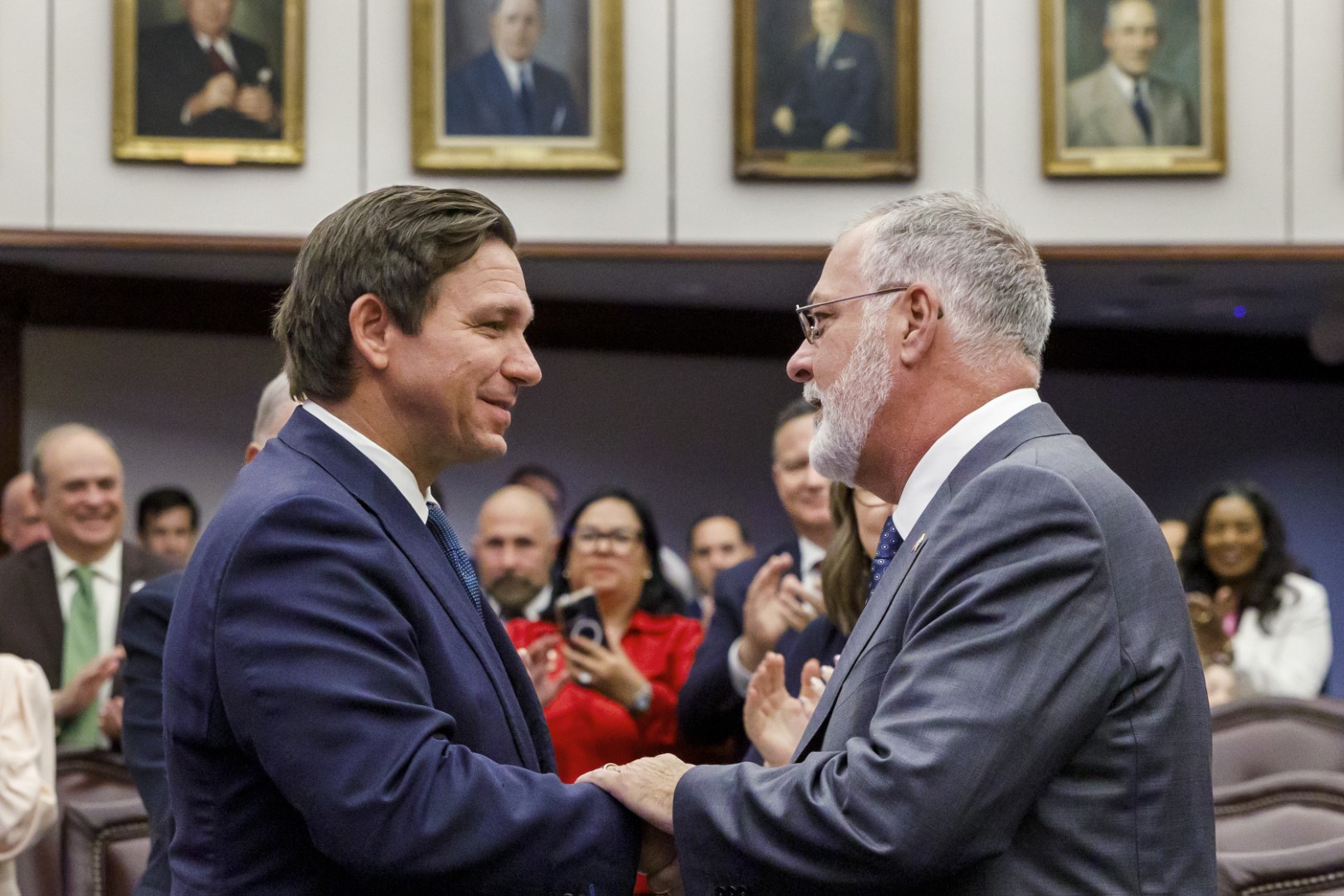State lawmakers across the United States are considering bills that would assist President Donald Trump’s promise to deport millions of people who are in the country illegally. Dozens of proposals require state and local officials to cooperate with federal agencies’ crackdown on illegal immigration.
Proposals include prohibitions on cities adopting so-called sanctuary policies and new laws allowing authorities in states to arrest people they suspect are in the country illegally.
Local officials could face fines or other penalties for refusing to cooperate with U.S. Immigration Customs and Enforcement (ICE) under a number of measures across the United States.
The Statehouse Reporting Project at the University of Missouri analyzed 223 bills across 35 states related to immigration enforcement. Most bills, 76%, sought to aid the Trump administration’s efforts.
Ramping up deportation is politically popular in the country. Two-thirds of Americans support deporting people who are in the U.S. illegally, according to an Axios/Ipsos poll conducted in January. When presented with specific deportation proposals, support declines significantly.
In 18 states, our search turned up only bills that would strengthen immigration enforcement and no bills supporting immigrant rights.
At least 17 bills would require state and local officials to provide information to or cooperate with ICE.
Twenty-two more bills would either bar cities from adopting sanctuary policies — measures that are favorable to immigrants — or divert state funding should the municipalities adopt such policies.
Immigration was once the purview of the states. As early as the mid-1800s, Massachusetts used taxpayer money to deport Irish immigrants who sought refuge from the potato famine.
In contemporary history, a 1996 federal law strengthened the federal government’s role in immigration. Part of that law enabled the states to collaborate with federal agencies. “That authority largely sat there unused,” said Michelle Mittelstadt of the Migration Policy Institute.
That changed after 9/11, when state, local and even university police worked with the federal government to combat and police terrorist activity. Local and state law enforcement increasingly shared information, including fingerprints, of people booked on both minor and serious crimes with ICE.
“These people ended up hoovered into the deportation pipelines, regardless of the severity of the offenses on which they had been brought in,” Mittelstadt said. This collaboration has waxed and waned over the last three presidential administrations.
At least seven bills across five states would criminalize entering a state as an undocumented immigrant. Those found guilty would face a fine up to $100,000, plus prison time or deportation. The bills mirror a Texas law currently on hold pending a lawsuit.
Proposals in several states would create the Interstate Compact for Border Security, an interstate immigration treaty. Bills with similar language have passed in Texas, Georgia, Oklahoma, Iowa, Missouri and Tennessee, Missouri state Sen. Jill Carter told the state Senate public safety committee at a Jan. 27 hearing.
“Missouri also has a responsibility to protect its borders and ensure the welfare and security of its residents,” Carter told the committee.
At least two states have hardline immigration bills with the acronym TRUMP.
A spat between Florida’s GOP-led Legislature and Republican Gov. Ron DeSantis has jeopardized the Legislature’s Tackling and Reforming Unlawful Migration Policy Act, or TRUMP Act.
Lawmakers passed the measure Jan. 28. DeSantis criticized the legislative package as “weak, weak, weak” and threatened to veto it. On Monday — nearly two weeks after they passed the bill — Florida lawmakers still hadn’t submitted it to the Governor’s Office for him to sign or veto.
Among its proposals: the death penalty for immigrants in the U.S. illegally and convicted of capital offenses, such as raping or murdering a child; money to state and local law enforcement enforcing immigration laws; and making it a felony for non-citizens to vote in elections.
Florida is among states seeking to compel employers to report the immigration status of job applicants.
Tennessee is challenging a 1982 Supreme Court decision by introducing a bill that would allow school districts to deny enrollment to undocumented students. The bill comes on the heels of a separate bill proposed in January called the “Tennessee Reduction of Unlawful Migrant Placement Act” or TRUMP Act, which would require undocumented immigrants to pay for their children’s attendance at public schools.
Tennessee lawmakers are also proposing the Tennessee Illegal Immigration Act, which would require law enforcement to hold detainees for ICE. If the person is not taken into federal custody, law enforcement would transfer them to a sanctuary city.
Under another bill passed by both chambers, public officials in Tennessee who outwardly support sanctuary policies could face a six-year prison sentence and a $3,000 fine.
Republican state Sen. Todd Gardenhire split from his party on the House floor to oppose the measure. “If we’re telling an elected official ‘You can’t cast a vote,’ that to me is not part of being a republic,” Gardenhire said.
Kansas Senators recently voted 31-9 to approve a resolution encouraging the Governor to cooperate with the Trump administration on immigration, including using the Kansas National Guard. Another Kansas measure bans companies from hiring “unauthorized aliens.”
Kansas is one of many states considering a bill that links undocumented immigrants to voting. Opponents contend the measures play into fallacious theories that large numbers of undocumented immigrants vote.
“You don’t have to be a citizen to get an ID in Kansas,” said Kansas state Rep. Pat Proctor, who introduced a measure aimed at investigating undocumented immigrants on voter registration rolls. “Folks that are not citizens could already be accidentally signing up to vote. The truth is we don’t know that it isn’t a problem.”
Michigan House Republicans want to amend the state constitution so residents are required to prove their citizenship before voting.
No attempts to tighten immigration advanced in the Virginia General Assembly this Session.
However, state Attorney General Jason Miyares said Virginia’s law enforcement professionals have “both the authority and a moral duty” to cooperate with lawful federal immigration orders. “I understand immigration in a way few others do,” Miyares said. His family immigrated from Cuba.
In January, the newly elected Governors of Indiana and Missouri both signed executive orders directing state law enforcement agencies to enforce federal immigration policies.
Indiana’s supermajority Republican General Assembly is considering more than 10 immigration bills. One would require law enforcement to report anyone they arrest whom they believe to lack permanent legal status.
Some states are pushing back.
Twenty-one percent of the bills analyzed by the Statehouse Reporting Project are in direct opposition to immigration enforcement efforts or seek to aid undocumented immigrants living in the country.
Some of these proposals are symbolic gestures. A measure in Arizona, a state with an equal number of bills supporting and opposing immigration, would replace “alien” with “immigrant” in state statutes.
Other measures seek to directly counter immigration enforcement. At least 12 bills are attempts to prohibit or limit state and local officials from cooperating with ICE.
Detention Watch Network, a group focused on ending immigrant detention, is pushing for proactive legislation limiting enforcement in three areas: keeping ICE out of sensitive areas like churches and schools, data privacy to limit government agencies from sharing information with ICE, and limiting state cooperation with ICE.
“Right now, enforcement is what we should prioritize to avoid people going through the detention and deportation pipeline,” said Luis Suarez, senior field advocacy manager for the network.
New York had the most bills, 15, opposing the Trump administration’s efforts followed by Hawaii and New Jersey. Democrats control both chambers and the Governorship in all three states.
New Mexico Democrats, who hold the Governor’s Office and majorities in both houses of the Legislature, are working to protect undocumented immigrants. Only about 10% of the population in New Mexico is foreign born.
One bill would give undocumented students access to in-state tuition rates and state scholarships that can pay full tuition. “We have folks who are working maybe one or two minimum wage jobs, have a family, and this bill would allow them the opportunity to pursue a higher degree, to improve their skills,” said the bill’s sponsor, state Rep. Eleanor Chávez.
Another bill would make it easier for immigrant victims of crime to get U visas, available to crime victims. Two other measures limit disclosure of a person’s immigration status to a third party.
Massachusetts has come far from its days deporting Irish immigrants. This year’s focus has been on the management of emergency assistance shelters filled to overflowing by migrants drawn to the state by a 40-plus year-old right-to-shelter law. The law targets families and pregnant women. The influx prompted Democratic Gov. Maura Healey and the Democratic supermajorities in the House and Senate to work to tighten requirements. Members of the very small Republican delegations have called for its repeal.
In the Legislature, the GOP is sponsoring measures to require state law enforcement to cooperate with ICE, a particularly sore spot after a municipal Judge allowed an undocumented immigrant to slip away through a backdoor while an ICE agent waited for the man charged with drug possession.
Legislative Democrats, on the other hand, have refiled measures to prevent cooperation with immigration-related police activity and to ensure detained immigrants have access to legal representation by allocating state funds for legal services.
Around 10 a.m. on a recent Wednesday morning, Suarez of Detention Watch Network drove home from his gym in Ontario, California, when he saw four men running across the street. “They literally ran through traffic,” he said.
Ontario is about 100 miles from the U.S.-Mexico border. Unmarked cars had pulled up in front of Farmer Boys, a California burger chain. Employees, mistaking the unmarked cars for ICE, took flight, pulling off their aprons as they ran.
After checking the cars and officers who huddled in the restaurant parking lot, Suarez went to find the men. They hesitated as he approached. He saw fear in their faces. The unmarked cars belonged to probation officers, he told them. And in California, state and local law enforcement are limited from collaborating with ICE because of state legislation passed in 2017.
“The biggest shock for me was the amount of fear that I could see,” Suarez said. “That spoke to the fear mongering that we’re feeling now.”
___
This story distributed by Fresh Take Florida, a news service of the University of Florida College of Journalism and Communications, is a collaboration. These journalists contributed to the reporting: Samantha Granados from VCU Capital News Service; Natalie Pursche from the University of Kansas; Mia Casas from the University of New Mexico; Katie Beth Cannon, Madeleine Bradford, Maya Burney, Bree Fabbie, and Lauren Haney from Belmont University; John Osmond from Capital News Service/Spartan Newsroom in Michigan; Anna Cecil from The Statehouse File at Franklin College in Indiana; the Boston University Statehouse Program; and Anna Sago and Adan Pittman from the University of Missouri. Thompson can be reached at [email protected]. You can donate to support our students here.
Post Views: 0

 Entertainment8 years ago
Entertainment8 years ago
 Entertainment8 years ago
Entertainment8 years ago
 Politics8 years ago
Politics8 years ago
 Tech8 years ago
Tech8 years ago
 Tech8 years ago
Tech8 years ago
 Tech8 years ago
Tech8 years ago
 Politics8 years ago
Politics8 years ago
 Tech8 years ago
Tech8 years ago















